NYAFF 2025 Part One
Reviews of three films from Hong Kong (Possession Street, Behind the Shadows, Smashing Frank) and Chinese director Vivian Qu's latest, Girls on Wire
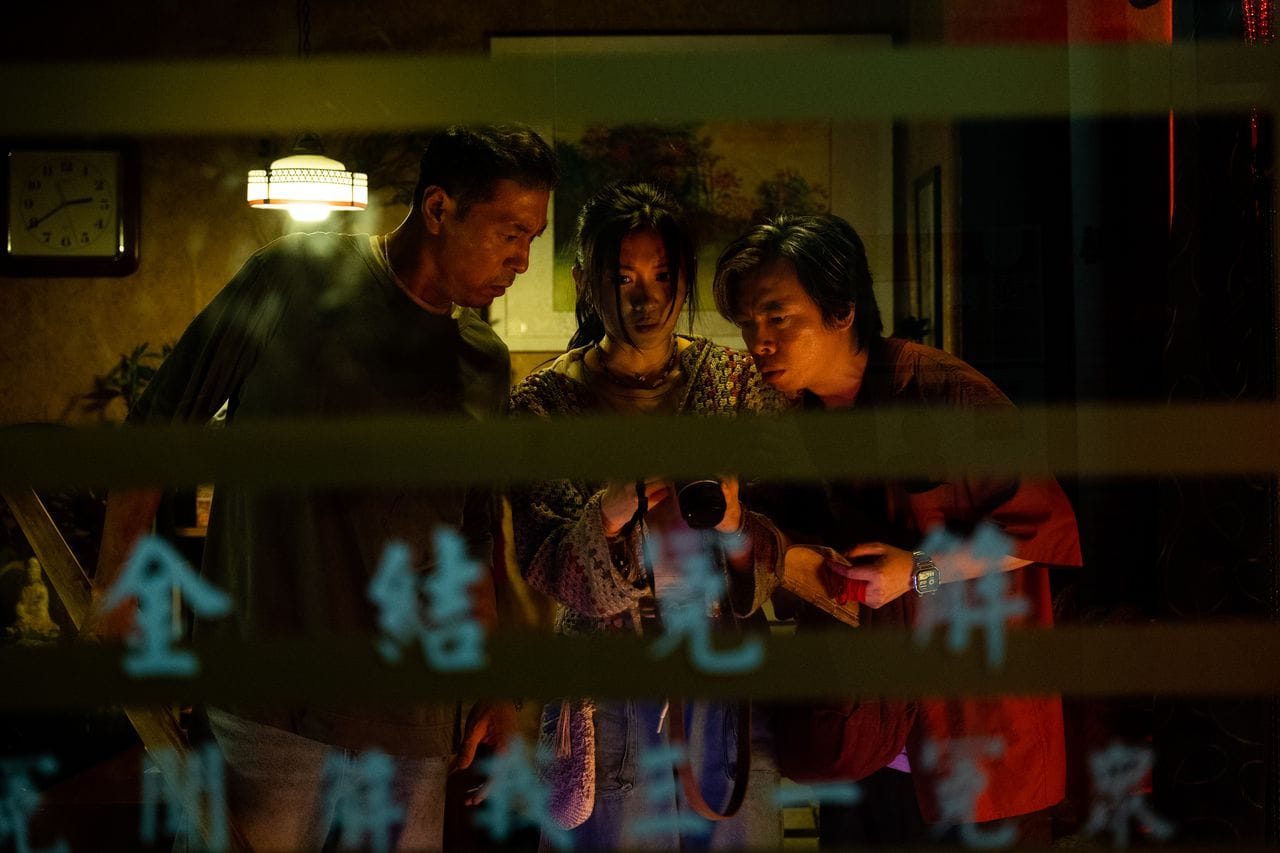
For the last several years I’ve covered the New York Asian Film Festival for InReview Online, and before that the MUBI Notebook. This year, I’m bringing the coverage here to The Chinese Cinema, and so we might as well start our coverage with four Chinese language films, three from Hong Kong and one from the Mainland.
Possession Street is by far the best of this batch of movies. A zombie film that is unabashed in its attempt to carry on the tradition of Hong Kong Cinema’s past glories, it at the very least provides the expected genre thrills, even if it doesn’t quite measure up to its influences. The ubiquitous Philip Keung stars as a retired stunt worker who runs a tiny video shop in a Hong Kong mall. He’s visited by his daughter (Candy Wong), who wants to drop out of college and become a filmmaker (expressly to carry on the great tradition of the former colony’s past cinema). She wanders through the mall and meets a handful of other shop owners and mall denizens, most of whom will shortly become fodder for a zombie outbreak, because the mall is built over a bomb shelter that was home to a grisly tragedy during World War II.
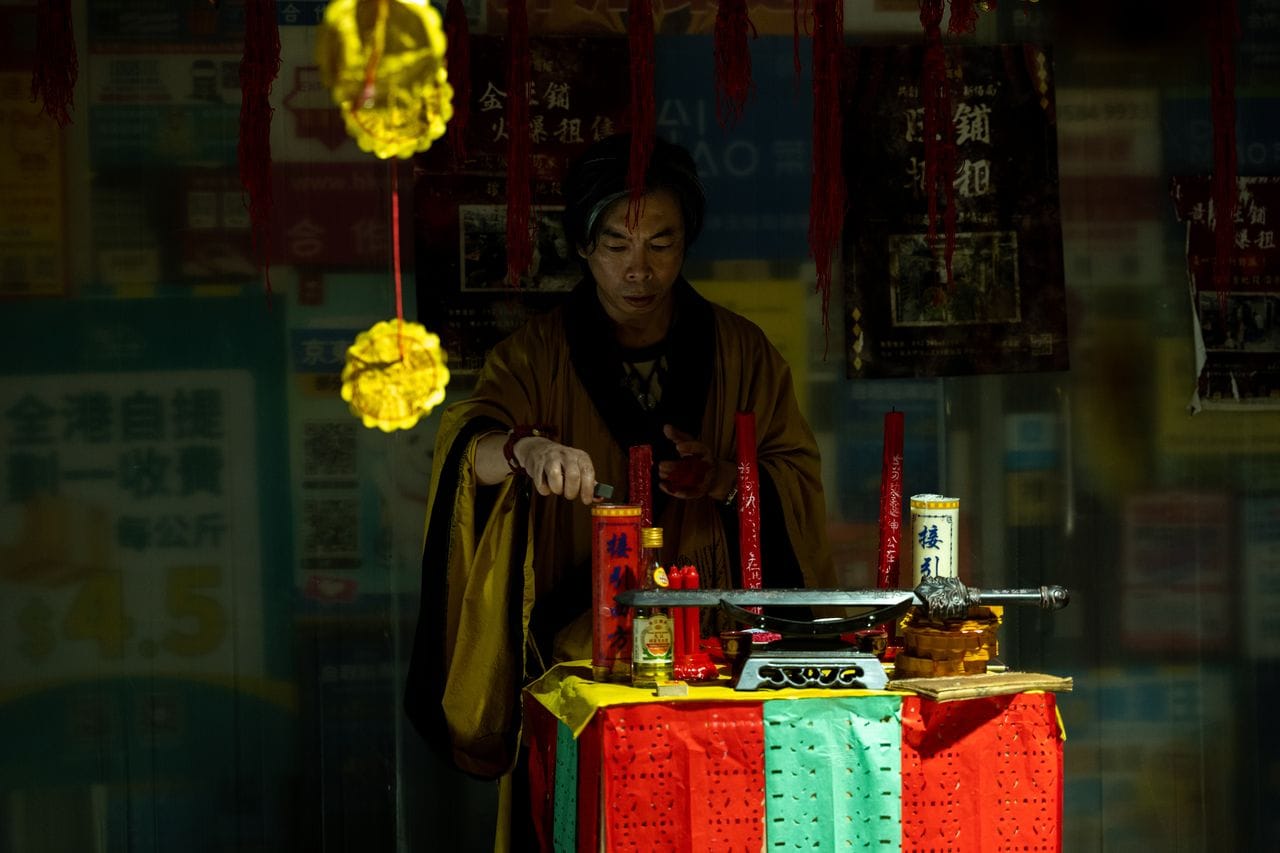
There’s a Taoist priest who lacks belief, a teen girl and her abusive businessman father, an asthmatic woman, the daughter’s morally questionable boyfriend, a restaurant-owning couple, and a night janitor. None of these characters particularly stand-out, as we spend most of our time with Keung and Wong, probably too much to keep this kind of film in the balance you really need when the bodies start dropping. Their relationship, complete with flashbacks, is sentimental and overplayed, but the two act it well and it gives the film a heart that its two most obvious forebears, Dennis Yu’s The Imp and Wilson Yip’s Bio-Zombie, are almost entirely lacking.
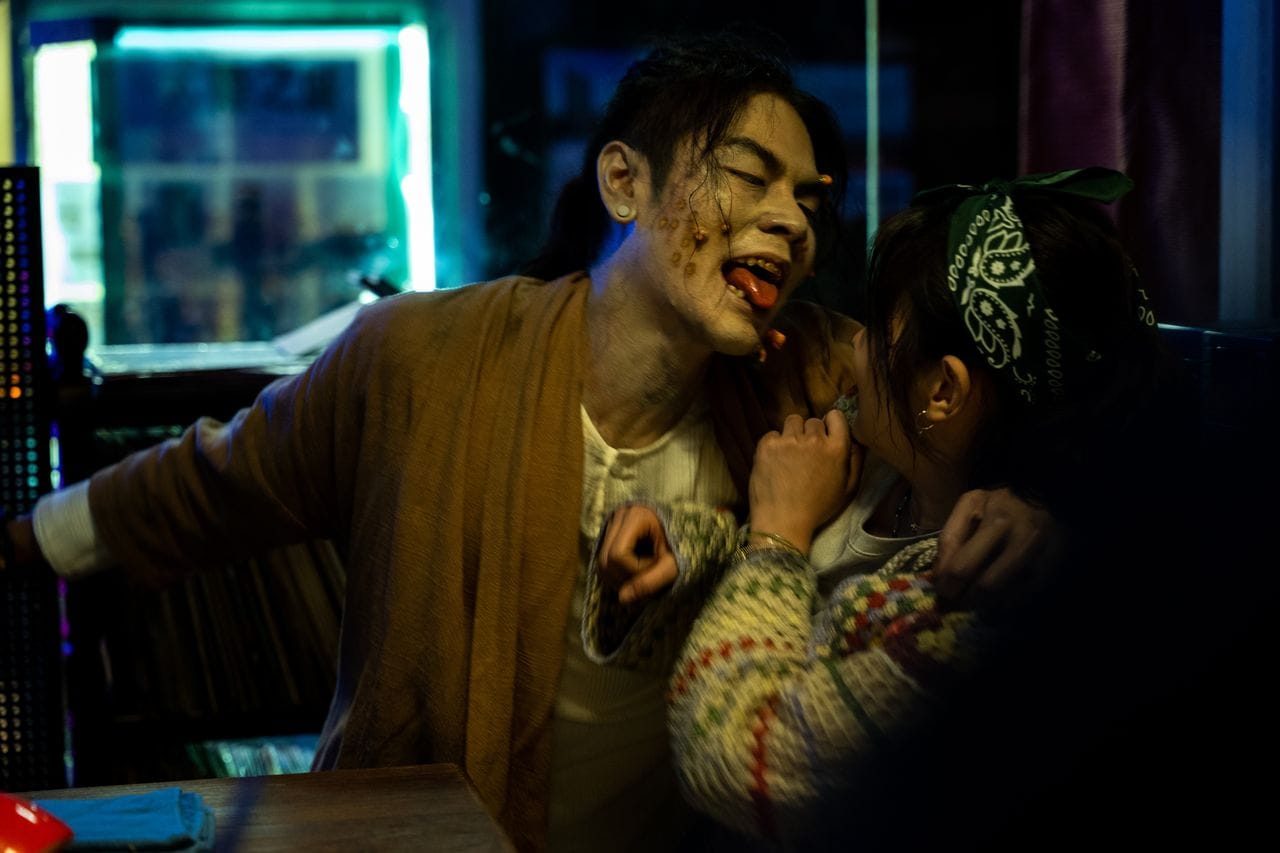
Of course, the cynicism that fuels those two films, and the barely concealed political outrage at their core, is what gives them their charge, and Possession Street’s choice to center the family melodrama, as well as the convoluted theological mechanics it uses to create its zombies, tempers its impact as satire or political statement. Which may be wise in Hong Kong’s current climate, but it doesn’t make for great filmmaking. Still, as a feature debut for longtime Milkyway Image assistant director Jack Lai, it’s a pretty solid thriller with some appealingly gooey special effects and some fine atmospheric use of the mall location. He’s reportedly already got two more movies on the way, and I’m looking forward to catching up with them.
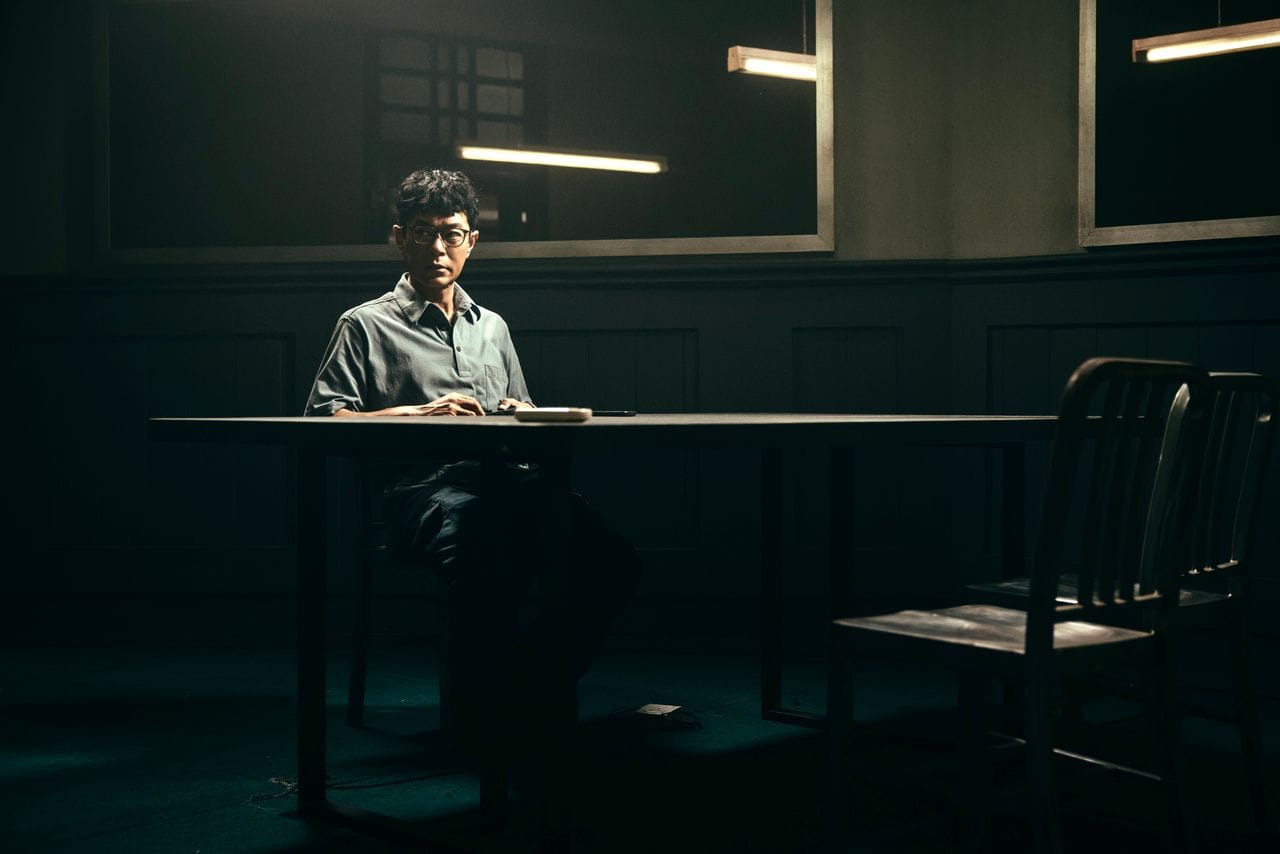
One of Lai’s upcoming films stars Louis Koo, because it’s impossible to work in Hong Kong without making a film with Louis Koo. Behind the Shadows is his NYAFF entry this year, directed by the team of Jonathan Li and Chou Man You. This is Chou’s first directorial credit, having worked as a screenwriter up until now. Li directed the 2017 Zhang Jin vehicle The Brink that I didn’t particularly like at the 2018 NYAFF. Like that film, Behind the Shadows features familiar stars with bad hair dealing with a promising premise that should have made for a better movie than what we get. Koo plays a scuzzy private detective who specializes in adultery cases who gets three clients in quick succession, all of whose cases will ultimately link back to that of a serial killer. One of the cases, much to his surprise, involves his wife: her lover hires him to find out who she’s cheating on him with (turns out its her husband, the detective himself!)
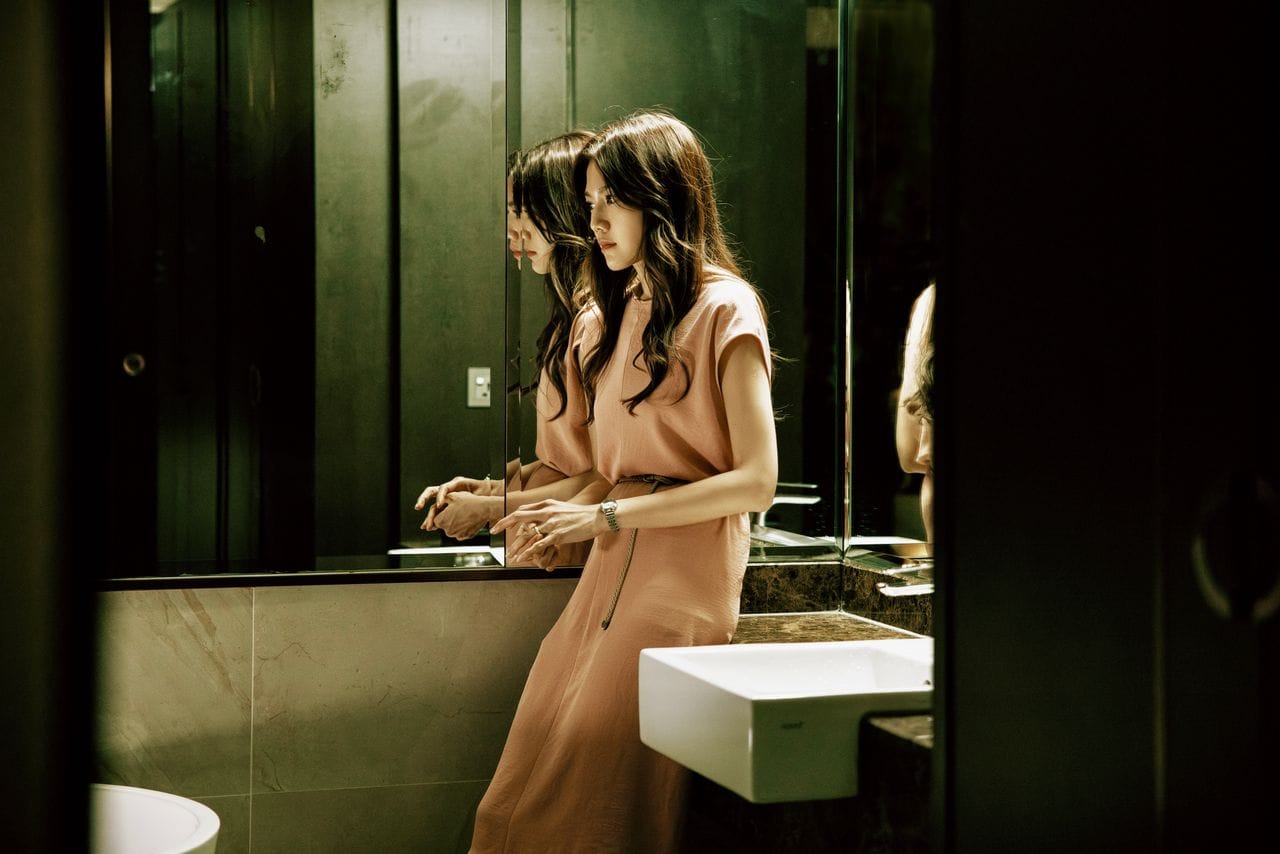
Koo, despite his hair, which is uncannily full and black (I suspect, but cannot confirm, the use of a wig), is by now the right age and almost the right degree of physically dissipated (finally!) to be playing a cynical, broken down private eye who needs to have his faith in humanity restored by just the right case. But after an intro that promises just such a genre delight, we instead spend most of Behind the Shadows in a humorless meditation on infidelity and what it means to forgive a life partner. When Koo’s relationship is then paralleled to the killer’s, it’s more than any right-thinking person should be expected to take. Li and Chou are playing around with character types and genre expectations, a thing I would normally applaud, but they appear to have no real end in mind, no point to make that makes their somber reflections worthwhile.
Notably, I think, the film is set in Malaysia (a fact only revealed near the end, with a reference to the local currency). This is a common strategy with iQIYI films, the better to evade PRC censorship rules about depicting cops in a negative light. The only other hint of a place we get is a repeated bit where people switch between Cantonese and Mandarin when talking to Koo, and his lament that he left Hong Kong, and a respected career, to follow his wife to a new place. This is a sentiment I suspect is not all that uncommon among Hong Kong filmmakers who have moved toward the Mainland’s money.
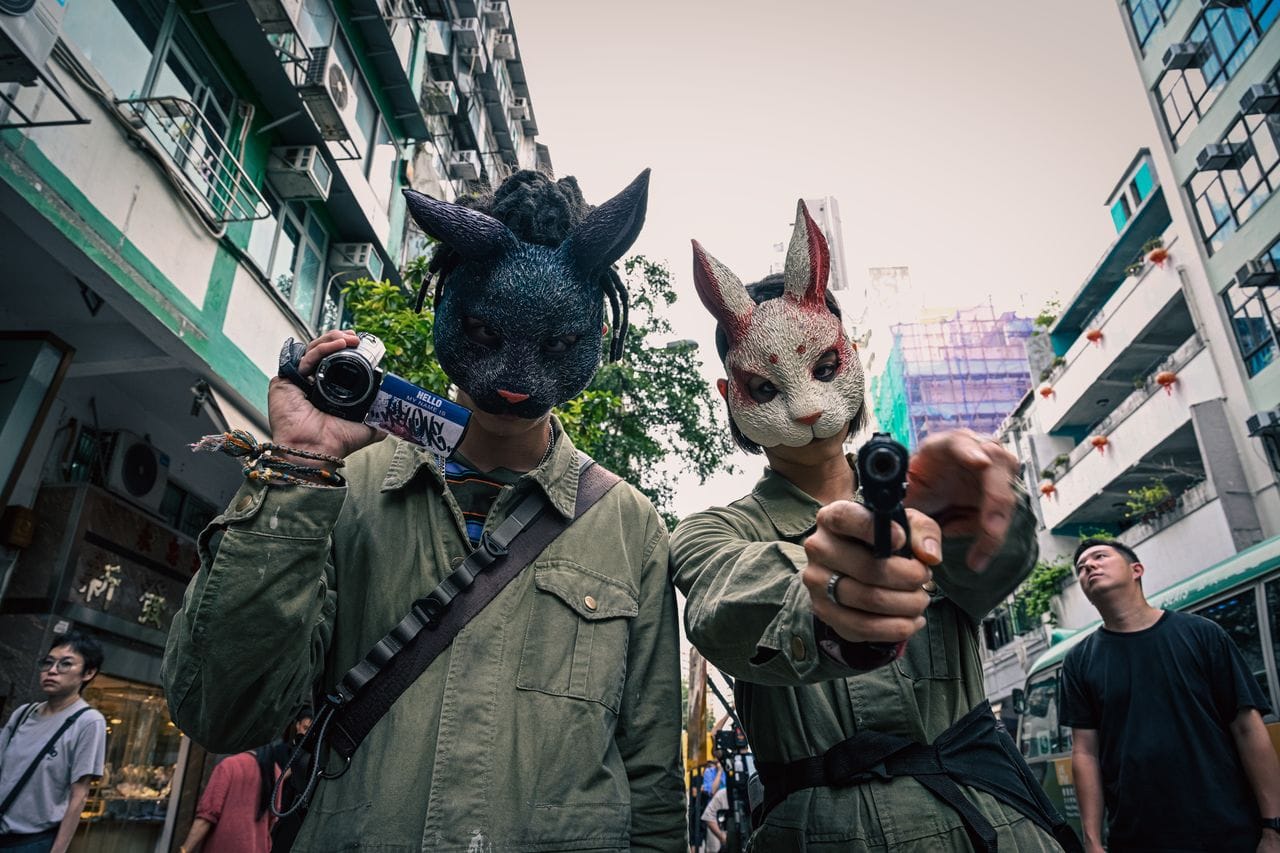
Resolutely taking place in Hong Kong though is Trevor Choi's debut feature Smashing Frank, which like Possession Street strives for the punk attitude of earlier eras of HK cinema, but like Behind the Shadows becomes to muddled to really work as allegory or provocation. “Frank” is the adopted name of a group of petty criminals who film their robberies for an internet audience and stumble onto a massive (and honestly not very well hidden) money laundering scheme involving all the richest people in Hong Kong and a Christian church. Why they named themselves “Frank” is anyone’s guess, as is whether the other word in the title is a verb referring to their organization being destroyed, or is meant as a complimentary adjective (much like “Smashing Pumpkins” I guess). Either way, it’s not a particularly good title.
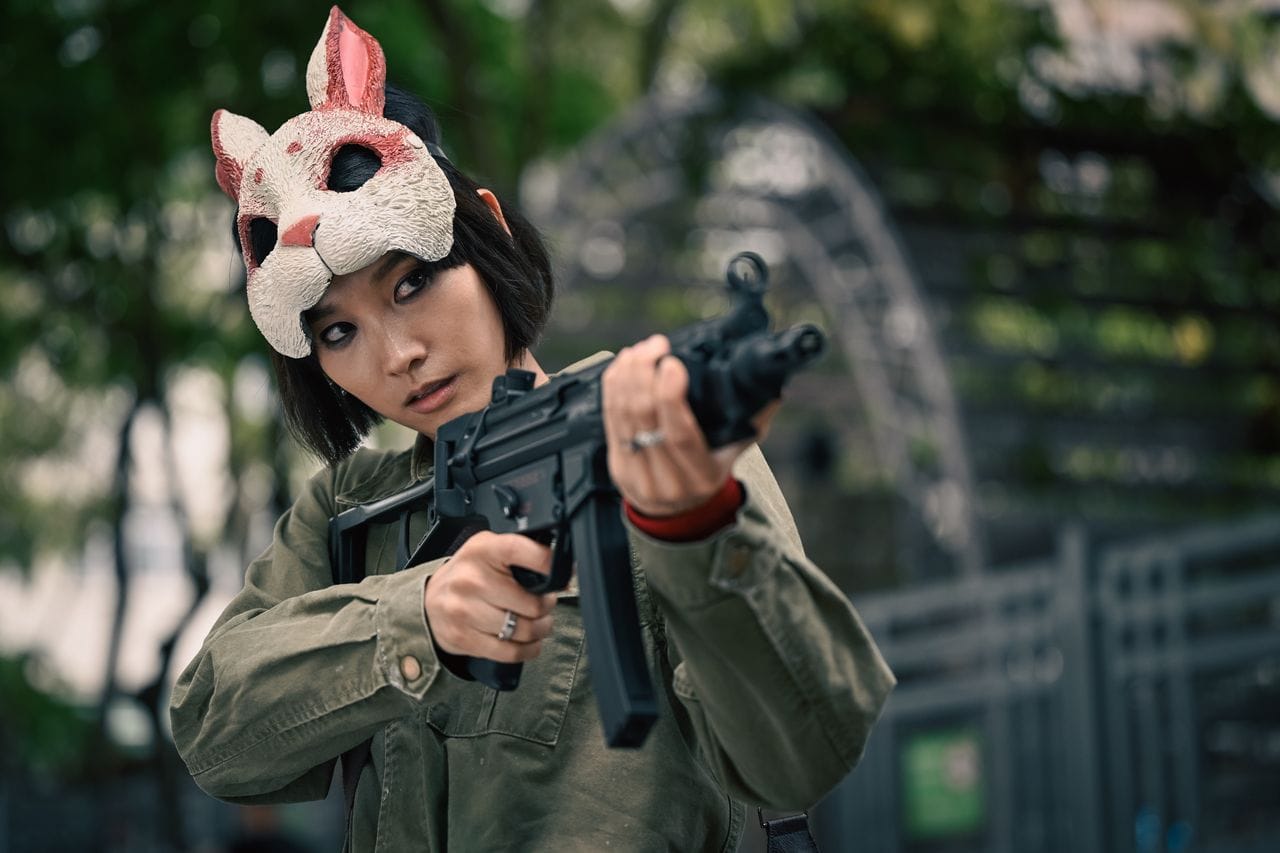
Anyway, Frank is made up of four people, two women, two men. The founders are a punk girl (Hedwig Tam) and her dread-locked boyfriend, who rob an armored car and later find out the jewels they stole belong to the richest guy in town who is also the leader of a vast criminal conspiracy involving trafficking all the usual bad stuff. They’re eventually joined by an awkward voyeur guy and his friend, a girl who specializes in blackmailing rich men who hit on her. Tam is the real standout here, in a performance of attitude and charm. I’ve seen her in a couple of things before (Weeds on Fire, and I Did It My Way) but this is the first time she’s really stood out to me.
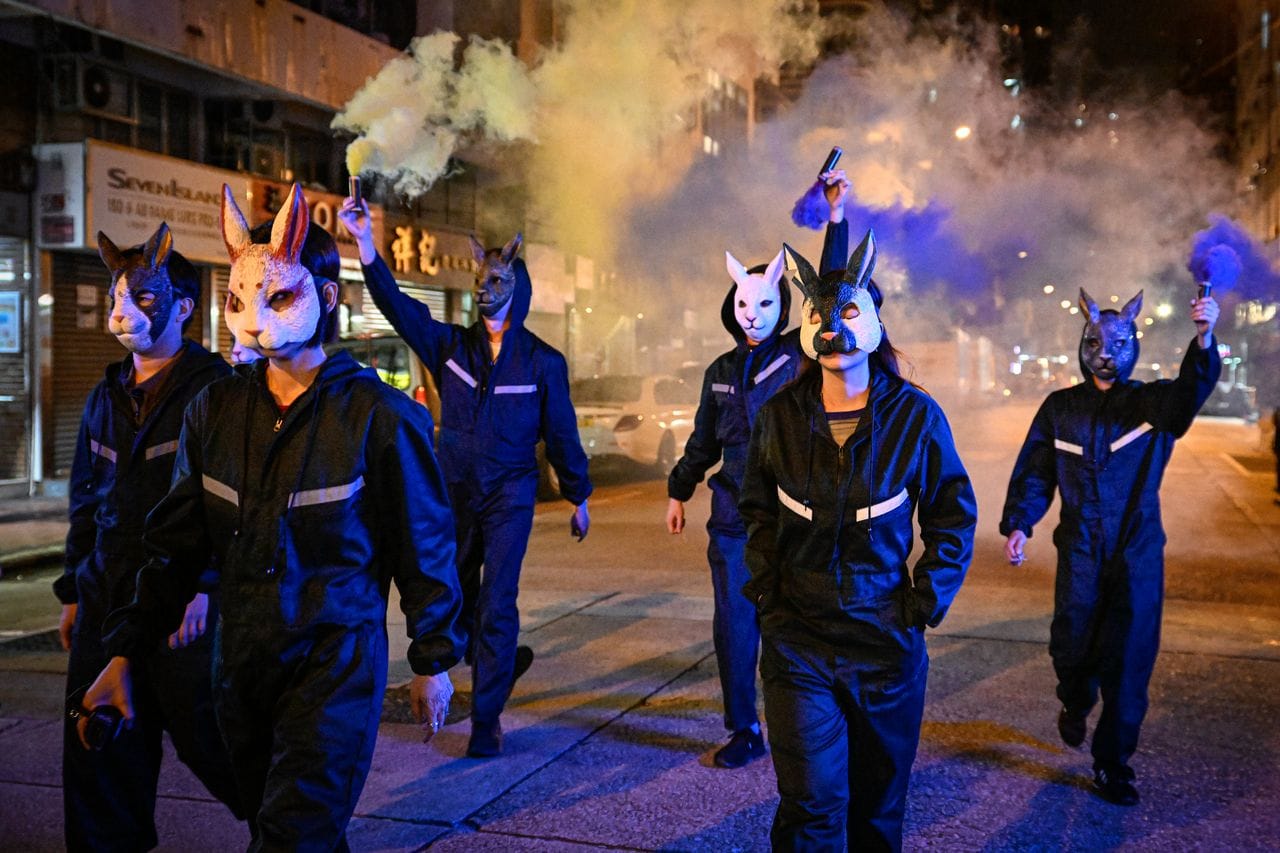
Eventually, Frank becomes a viral smash (so to speak), so when the robbers decide to hit the criminal group and expose them, they’re joined by mobs of other disaffected young people wearing masks (there are shades here of Herman Yau’s Death Notice). This turns out disastrously bad however, as these kids are in way over their head. As a metaphor for the crushing of dissent of an entire generation of Hong Kong’s youth, the film is as remarkably bleak as it is on the nose. A coda hints at a brighter future, but we all know how this story really ends.
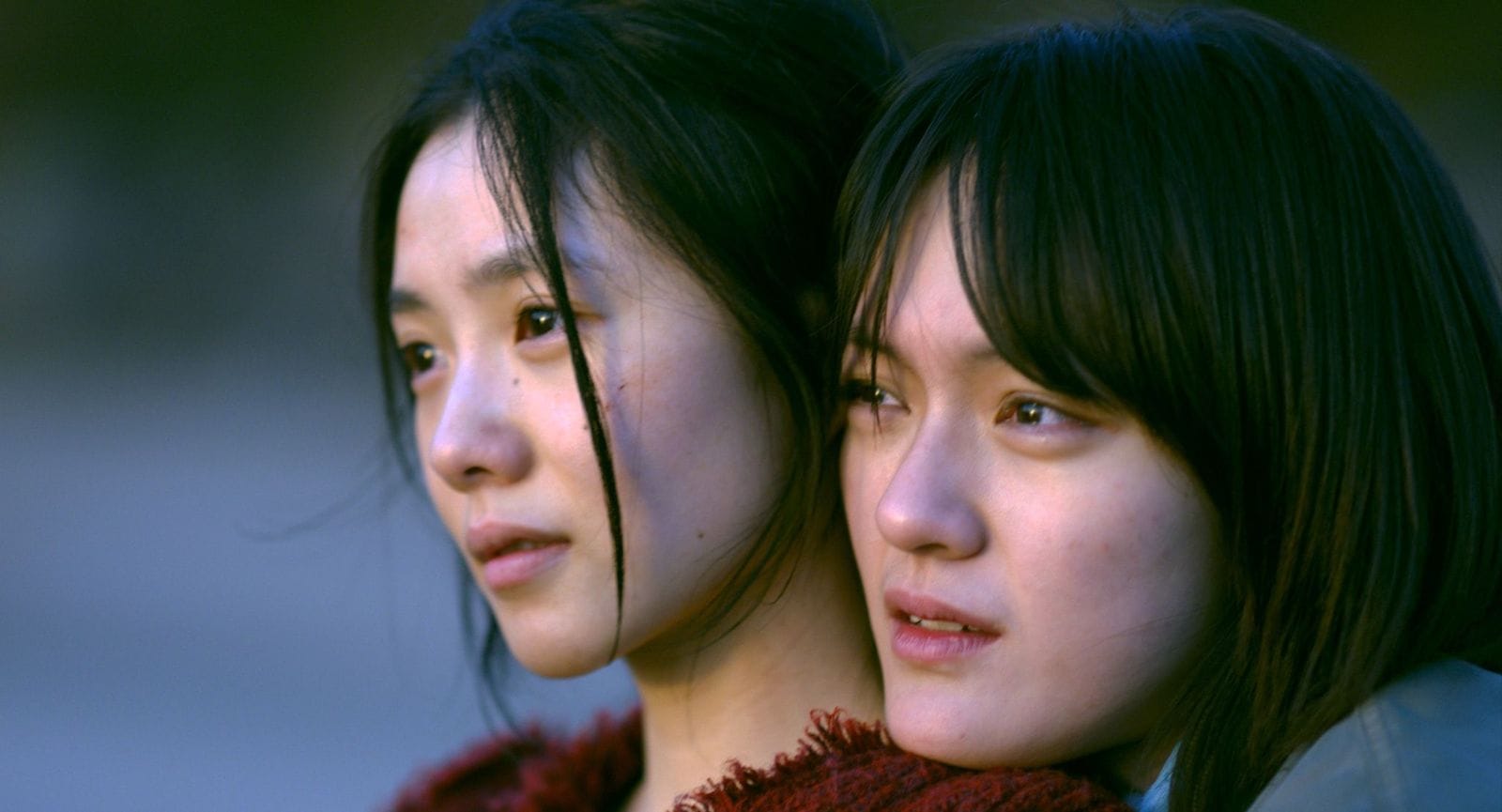
Even bleaker though is the latest from Vivian Qu. Though she’s only directed three films in the last 12 years, Qu seems to me to be one of the most important voices in Mainland Chinese film, if only because of her admirable refusal to make anything other than the movies she wants to make. Her debut Trap Street, which I caught at VIFF way back in 2014, was an atmospheric noir about life in a surveillance state. She followed it up in 2017 with Angels Wear White, which was a minor hit on the festival circuit that year, a stunning film about a young woman trying to deal with the fact that though she possesses clear evidence of a crime against another woman, the system around her (government, police, business) doesn’t particularly care about clear evidence when it comes to crimes of the powerful against the powerless. It’s been a long time since then, but finally we’ve got Qu’s next film, Girls on Wire, and while in some ways it builds on the strengths of her first two works, it’s also her least convincing film, stumbling on the basics of genre plot construction that her earlier films so deftly undermined or avoided altogether.
It opens with a woman desperately escaping from some men who have caged and drugged her. She runs away, eventually meeting up with her cousin, who works as a stunt performer in one of China’s vast studio cities (where genre movies are churned out for theatres, television, and streamers like iQIYI). The girl is being hunted by the men who had imprisoned her (they’re drug dealers, which is PRC shorthand for “The Worst People in the History of the World Who are Both Irredeemably Evil and Totally Incompetent”), and she and her cousin are repeatedly forced to flee and fight back when they have to. This has the makings of a classic women on the run movie: punctuate it with a few fight scenes (one of them surely has martial arts training as a stunt performer), maybe a romance or two, and some speeches about family and togetherness and overcoming obstacles, and you’ve got a stew going. Qu eschews all of that, however.
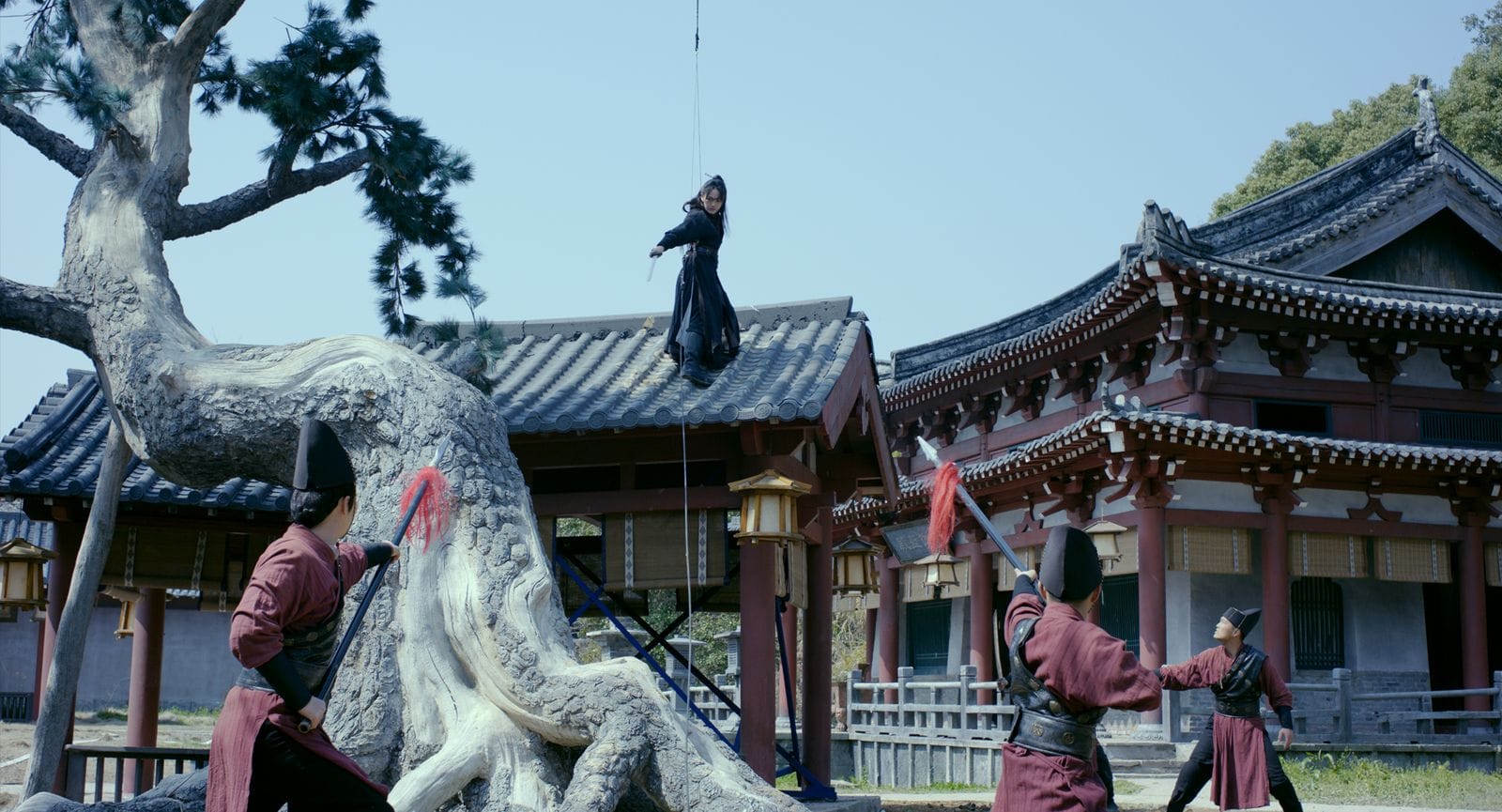
It’s a fine strategy, and at times it works really well (I particularly enjoy the title's punning riff on the cinema of Ringo Lam). The fight scenes, for example, are satisfyingly amateurish and chaotic, more real-life than wuxia fantasy. Qu tips her hand here with an extended sequence of the stuntwoman at work, where she is suspended by the wires of her trade and repeatedly dunked in freezing water all night long so the director can, supposedly, get the exact shot he wants. His wanton disregard for his worker’s well-being (and honestly basic incompetence at action filmmaking) is surely all-too-common in the film world, and Qu makes her point effectively. So when it comes time for her fight scenes, she won’t give us any of that exploitative illusion.
Unfortunately, her indifference to the mechanics of the suspense story (which worked so well in the elisions of her first two films) mean that very little of what happens in the present–basic questions like how did they get there? who are those guys? where are they now?–are totally ignored, with Qu choosing instead to spend at least half the movie on flashbacks explaining the women’s relationship, and specifically the abuses of the first girl’s father, a junkie who repeatedly took advantage of his family members, right up to the present, catalyzing his daughter’s current predicament. All of this stuff is generic melodrama, overwrought and familiar. Still, it might all work if the suspense of the chase story functioned rationally, but it doesn’t. The bad guys simply keep showing up, regardless of where the women hide or where they run to. It makes so little sense I suspect it has to be metaphorical, but for what I have no idea (men in general? the baleful influence of the father’s mistakes? drug addiction?).
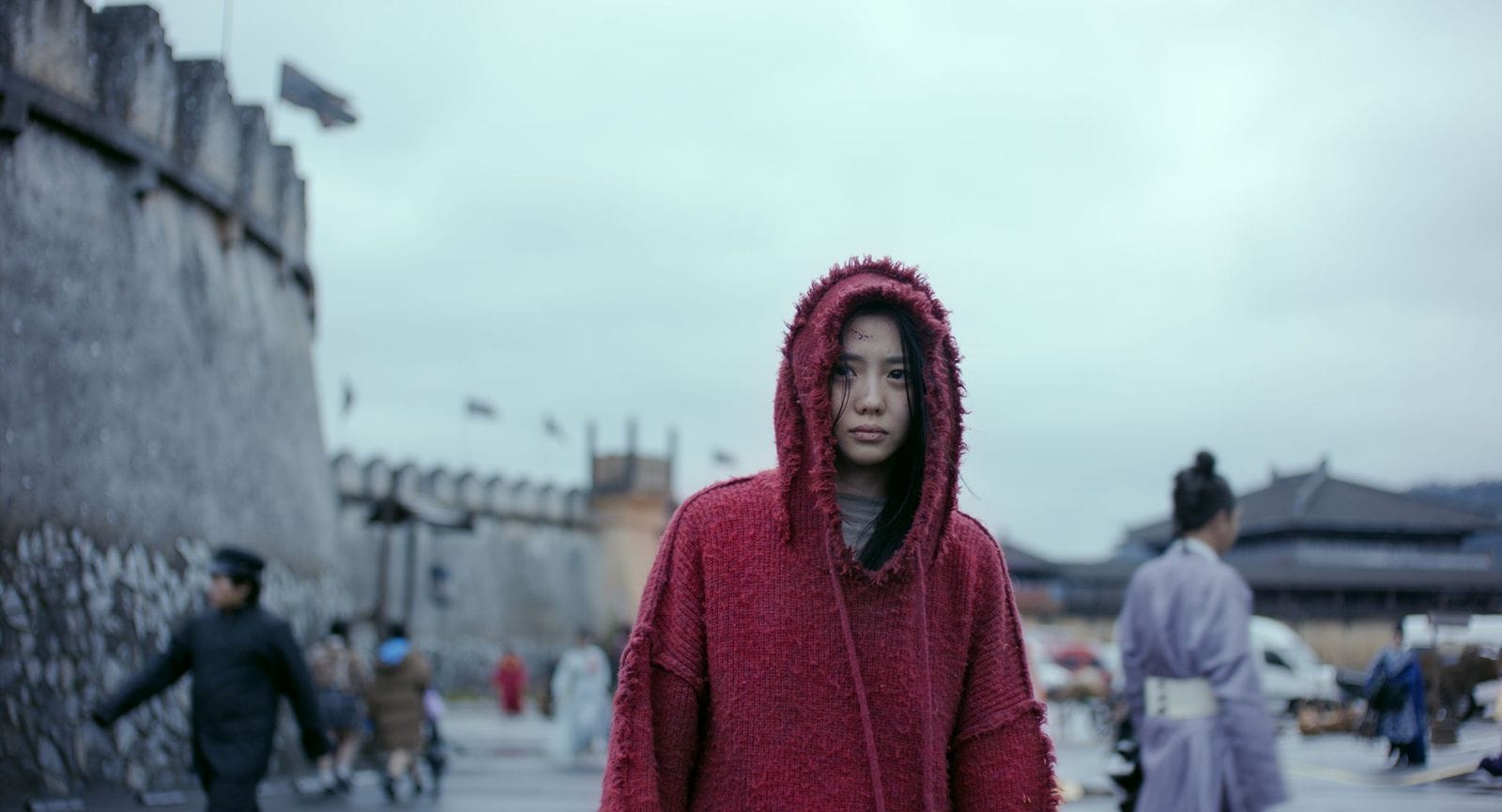
It’s a shame, because Girls on Wire has some of Qu’s most striking images, from the harrowing red and black opening sequence, to the various wuxia scenes (the final little mini-fight is terrific), to the finale set on a beach at dawn. The effect of that sequence though is undermined, in what I’d like to think is a bit of black comedy on Qu’s part, though she shows little interest in humor of any color to be honest, by the police showing up out of nowhere. We have no idea how they knew to go there, but at least they’re too late to do any good at all. Ain't that just like the cops for ya.
